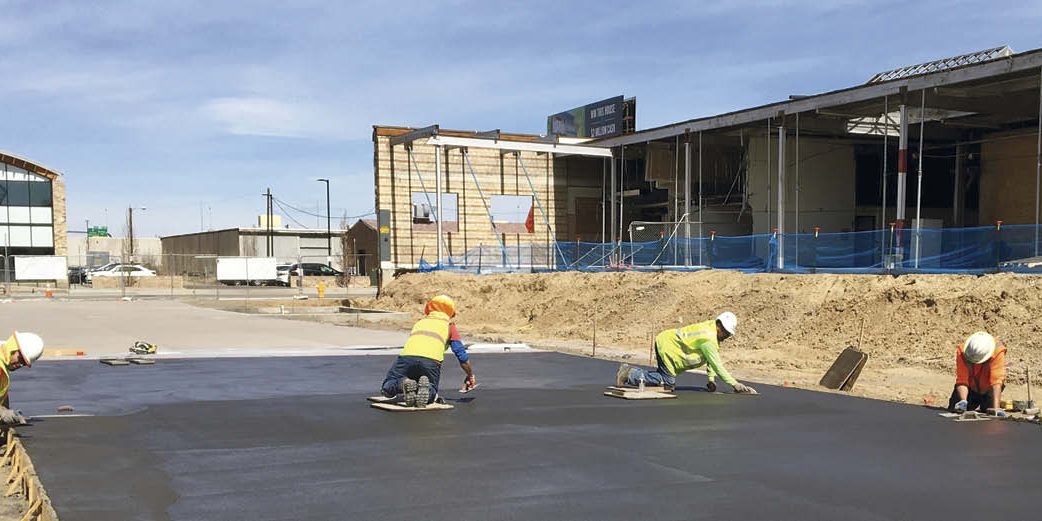When it comes to constructing or renovating your home, the expertise of a residential concrete contractor plays a pivotal role. Concrete, a foundational material in residential construction, is indispensable for its durability and versatility. This comprehensive guide dives deep into the world of residential concrete contractors, providing insights and advice to homeowners who seek quality and resilience in their construction projects.
Understanding the Role of Residential Concrete Contractors
A residential concrete contractor is more than just a builder; they are artisans and engineers who bring your home’s most crucial elements to life. Their expertise lies in planning, executing, and overseeing concrete installations that form the backbone of your home.
The Importance of Concrete in Residential Construction
Concrete’s unique qualities, including its strength, longevity, and flexibility, make it a preferred choice for various residential projects. Understanding its importance helps in appreciating the meticulous work done by a residential concrete contractor.
Preview of Key Topics Covered
This guide will explore how to choose the right contractor, different types of concrete services, project planning, the installation process, maintenance tips, and much more.
Choosing the Right Contractor
Qualifications and Experience
Selecting a qualified and experienced residential concrete contractor is crucial. Look for someone with a strong portfolio of completed projects and relevant industry experience.
Reading Reviews and Seeking Recommendations
Client reviews and recommendations provide insights into a contractor’s performance, reliability, and customer service quality. They are invaluable in gauging previous clients’ satisfaction levels.
Verifying Licenses and Insurance
It’s imperative to verify the contractor’s licensing and insurance. This step ensures legal compliance and protects you from potential liabilities.
Types of Residential Concrete Services
Foundations and Slabs
The foundation of your home is arguably the most crucial element in residential construction. A skilled residential concrete contractor ensures that this foundation is solid, level, and durable.
Driveways and Walkways
Concrete driveways and walkways offer a blend of functionality and aesthetic appeal. They are the first thing visitors see, setting the tone for your home’s overall look.
Decorative and Stamped Concrete
For those looking for something beyond the traditional, decorative, and stamped concrete offer unique designs and textures, transforming your space into a work of art.
Planning Your Concrete Project
Understanding Your Needs and Preferences
Before starting any project, it’s important to have a clear idea of what you want. Discuss your specific needs, preferences, and expectations with your residential concrete contractor.
Setting a Budget
Budgeting is a critical step in any construction project. A transparent discussion about costs with your contractor can help manage expectations and avoid surprises.
Scheduling and Timeline Considerations
Concrete work is weather-sensitive. Therefore, scheduling and timing are crucial factors. Your residential concrete contractor should provide a realistic timeline for project completion.
The Concrete Installation Process
Site Preparation and Safety Measures
A professional residential concrete contractor will focus on thorough site preparation and adherence to safety protocols, ensuring a smooth and safe working environment.
Mixing, Pouring, and Leveling
These steps are the heart of the concrete installation process. The contractor must demonstrate precision and skill in mixing, pouring, and leveling the concrete to achieve the best results.
Curing and Finishing Techniques
The curing process is vital for the concrete to reach its maximum strength. Various finishing techniques can also be applied for aesthetic and functional purposes.
Maintenance and Care of Concrete
Regular Cleaning and Sealing
Regular maintenance such as cleaning and sealing extends the life and preserves the appearance of concrete surfaces.
Addressing Cracks and Damage
Addressing small cracks and damage promptly can prevent more significant issues in the future. A knowledgeable residential concrete contractor can advise on the best repair methods.
Long-term Care and Prevention Tips
Your contractor should provide tips on long-term care and preventive measures to maintain the integrity of the concrete over time.
Latest Trends in Residential Concrete
Eco-Friendly Options and Sustainability
The trend towards sustainable construction has led to eco-friendly concrete options. Discuss these alternatives with your residential concrete contractor.
Innovative Designs and Textures
Modern concrete technology allows for innovative designs and textures, making concrete work an exciting area of residential construction.
Coloring Techniques and Customizations
Coloring techniques enable homeowners to personalize their concrete installations, making each project unique.
Troubleshooting Common Issues
Identifying Potential Problems Early
An experienced residential concrete contractor can help you identify potential problems early, avoiding costly repairs later.
DIY Fixes vs. Professional Repair
Understanding when a DIY fix is sufficient and when a professional repair is needed can save both time and money.
Preventative Measures and Best Practices
Preventive measures are key in maintaining the longevity and appearance of concrete structures. Your contractor should guide you on best practices.
Cost Considerations
Estimating Your Project Costs
A clear understanding of your project costs is crucial. Your residential concrete contractor should provide a detailed estimate to help you budget effectively.
Understanding Pricing Factors
Many factors, such as material quality, project size, and design complexity, influence the cost of concrete projects. Understanding these can help you make informed decisions.
Saving Money Without Compromising Quality
Learn strategies to economize without sacrificing the quality of your concrete project.
Legal Aspects and Compliance
Permits and Local Regulations
Navigating permits and adhering to local building codes is a crucial part of the contractor’s job. A reputable residential concrete contractor will handle these aspects efficiently.
Contractor Liability and Warranty Issues
Understanding issues related to contractor liability and warranties is important for your protection and peace of mind.
Navigating Disputes and Resolutions
Effective communication and understanding of contractual agreements can help in handling any disputes that may arise during the project.
Frequently Asked Questions (FAQs)
What does a residential concrete contractor do?
A residential concrete contractor specializes in planning, installing, and finishing concrete for various residential projects like driveways, patios, foundations, and decorative concrete work.
How do I choose the right residential concrete contractor?
Look for experience, check their licensing and insurance, read reviews and testimonials, and ask for a portfolio of their previous work. Personal recommendations can also be valuable.
What are the different types of residential concrete services?
Services include laying foundations, constructing concrete slabs, building driveways and walkways, and creating decorative and stamped concrete features.
How much does it typically cost to hire a residential concrete contractor?
The cost varies depending on the project’s size, the type of concrete work required, the complexity of the design, and regional pricing differences. Always get a detailed quote upfront.
How long does a concrete project usually take?
The duration depends on the project’s scope, weather conditions, and any preparation work required. Smaller projects might take a few days, while larger ones could take several weeks.
What maintenance is required for concrete surfaces?
Regular cleaning, periodic sealing, and prompt repair of any cracks or damage are key to maintaining concrete surfaces.
Can a residential concrete contractor help with custom designs?
Yes, many contractors are skilled in creating custom designs and can work with you to bring your vision to life with colored, stamped, or textured concrete.
Are there eco-friendly options for concrete construction?
There are eco-friendly concrete options available, including recycled concrete and low-impact production methods.
What should I do if I notice cracks in my concrete?
Small cracks might be a normal part of settling, but it’s best to consult with a professional for an assessment and appropriate repairs.
Is it necessary to get a permit for concrete work?
This depends on local regulations and the scope of the project. A qualified residential concrete contractor should be familiar with the necessary permits and can handle the process.
Conclusion and Final Thoughts
From choosing the right contractor to understanding the nuances of concrete work, this guide has covered the essential aspects of dealing with a residential concrete contractor.
The value of hiring a professional residential concrete contractor lies in their ability to deliver quality work that stands the test of time.
We encourage homeowners to make informed, sustainable, and quality choices in their concrete projects.







